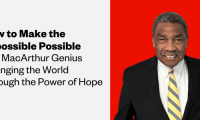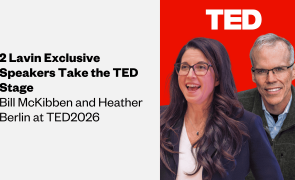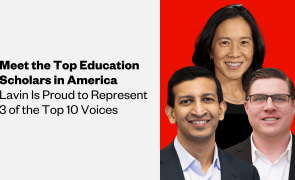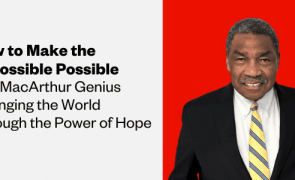Everyone wants to be happy and healthy—but it doesn’t come easy. The pressure of performing well at work and having a fulfilling personal life can often be hard to manage—and that’s where Lavin’s Top Happiness & Wellness Speakers come in. Experts in how to actively enhance our inner lives and outer selves, they inspire audiences to take charge of their own lives, engage with their environment, explore the myriad of factors that affect happiness and mental health, and get the most out of life.

Valorie Kondos Field is the former UCLA Women’s Gymnastics Coach who breathed life into the sport by shifting away from a win-at-all-costs mentality, to considering her students as whole people, rather than just athletes, instead. Her unorthodox leadership style centered around practicing gratitude, taking personal ownership, and recognizing joy. And it paid off: she became a seven-time NCAA champion coach, and a UCLA Hall of Fame inductee. Candid and inspiring, Kondos Field uses her experience from the world of elite sports—as well as her experience as a breast cancer survivor—to show how to motivate positive change and rise above challenges to reach high-performance success.

Charles Montgomery is an urban design consultant and the author of Happy City. His work uses psychology to create urban experiments that help us understand our surroundings—and ourselves—better than ever. To Montgomery, our cities aren’t simply places where we live and work: they’re behavioral devices whose shapes and systems alter our mental, emotional and physical health. Drawing from his own research, experiments, and careful observation, he gets people thinking about how urban development and design should take happiness into consideration, and highlights the best setups and strategies from around the world where happier, healthier spaces exist.

Emily Esfahani Smith offers us a more fulfilling alternative to the endless pursuit of the ever-elusive concept of happiness: purpose. Combining storytelling with years of research into psychology, philosophy and neuroscience, she explores how, instead of valuing happiness alone, we should engage with a lifelong search for meaning. Drawing from her book, The Power of Meaning: Crafting a Life That Matters, Smith offers methods to let go of our harmful ideas of happiness, pursue healthier goals that are truly rewarding, and enrich our lives both at work and at home.

Lori Gottlieb was a Hollywood film executive and a nationally recognized journalist, before she became a psychotherapist, and now, a bestselling author. Her book, Maybe You Should Talk to Someone, is a candid, absorbing memoir about being both a patient and a clinician. Through her clinical work, she discovered that stories make up the core of our lives and give them deeper meaning—but that we’re not always telling ourselves the right ones. Funny and compassionate, she shares how revising our well-worn narratives is the key to moving forward, healing, finding happiness, and creating lives of deep fulfillment.

Anthony Tjan knows that a company is only as good as its people. But how do we attract good people? Drawing from his aptly titled book Good People, Tjan shows leaders how to put goodness into practice: a way to deepen relationships and revive the purpose of our work. He shares his five common sense principals for leadership and communication, and show you how prioritizing and fostering goodness and compassion in yourself and others drives positive and progressive change.

Karl Subban has more than a few accomplishments under his belt—like his 30 plus years as an educator and former principal—but perhaps his proudest is being a hockey dad to P.K., Jordan, and Malcolm Subban. Raising one NHL player is impressive, but raising three is extraordinary: it’s proof that Subban knows how to bring out the best in people. Drawing on his experience as both a father and a teacher, Karl explores the importance of strong leadership, and encourages others to reach their full potential. With a commanding, inspiring presence, Subban reinvigorates audiences, and remind them of the true power of believing in oneself.

Dan Lerner knows that in such a competitive society it feels like finding success at work comes at the cost of finding true happiness and authentic connection—and that that doesn’t have to be the case. A psychology professor at New York University, where he teaches their most popular elective “The Science of Happiness”, Lerner reveals how passion, grit, and happiness play an integral role in unlocking our true potential and making the most of our ambition. Also the author of U Thrive: How to Succeed in College and in Life, Lerner has made a remarkable career out of helping people achieve excellence, at work and at home. If we can pursue our passions in the right way, we can avoid burnout, thrive under pressure, and come out happy and accomplished.

Ritu Bhasin is a leadership consultant who discovered an undeniable relationship between inclusion and authenticity. Her book, The Authenticity Principle, explores this connection, as well as insights from her work as a yoga and mindfulness instructor—a practice she credits as being a key pillar of building personal and professional joy. When workplaces are more inclusive and diverse, and employees are encouraged to express their individuality, they become more productive and feel more connected to a shared purpose.

Scott Barry Kaufman is the bestselling author of Ungifted and Wired to Create, and he uses science to understand how we can cultivate meaning and creativity in our lives. In his upcoming book Transcend, the renowned professor reimagines Maslow’s famous hierarchy of needs by weaving in the latest contemporary research on connection, creativity, love, and purpose. Becoming the best version of ourselves, or achieving self-actualization, is often thought of as a purely individual pursuit. Kaufman shows us that it involves a merging between the self and the world around us. Insightful and empowering, he reveals that we don’t have to choose either self-actualization or self-transcendence: finding fulfillment in our lives comes from nurturing both.

David Yeager, an Assistant Professor of Psychology at Stanford, and Carol Dweck’s protégé, is a pro at making people feel respected. His research examines the intersection of social, economic and physiological factors, and how they combine to create positive or negative environments. He shares the latest data and discoveries on traits like grit and a growth mindset—and how harnessing these qualities can compensate for disadvantages. A sense of belonging is important to any successful team, and backed by large-scale behavioral research, Yeager provides the tools to develop workplaces that promote skill-sharing, and empower everyone to achieve excellence.















